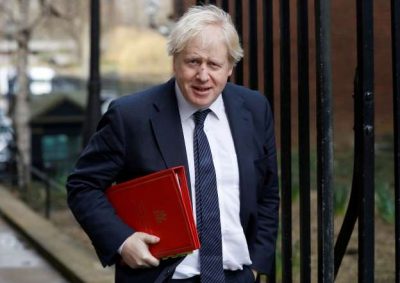UK House of Lords Members Block No-Deal Brexit

Overnight Thursday, majority House of Lords members voted to require Boris Johnson to ask Brussels for a Brexit delay until end of January if a deal isn’t reached by October 19 — blocking his no-deal Brexit aim by October 31.
Approval of the measure by Queen Elizabeth is expected early next week, likely Monday. The House of Lords Twitter account called it “a formality.”
What Johnson called a “surrender bill” is about to become the law of the land.
The vote was his fourth parliamentary defeat v. no meaningful triumphs since becoming prime minister in late July.
His tenure is shaky, perhaps to be short-lived. Remarks like saying he’d “rather be dead in a ditch” than delay Brexit may hasten things.
He staked his premiership on delivering Brexit with or without a deal by October 31, “do or die.” The latter won out once Queen Elizabeth approves the House of Lords measure.
Johnson hoped his five-week parliamentary suspension (from next week to Oct. 14), wanting little time for debate, would let him to ram through a no-deal Brexit. His plan backfired, at least so far.
Majority Commons MPs blocked his no-deal Brexit aim. Lords members followed suit, voting to make the scheme illegal.
Their measure requires Johnson to ask Brussels for a Lisbon Treaty Article 50 extension. It states the following:
“1. Any (EU) Member State may decide to withdraw from the Union in accordance with its own constitutional requirements.
2. A Member State which decides to withdraw shall notify the European Council of its intention. In the light of the guidelines provided by the European Council, the Union shall negotiate and conclude an agreement with that State, setting out the arrangements for its withdrawal, taking account of the framework for its future relationship with the Union.
That agreement shall be negotiated in accordance with Article 218(3) of the Treaty on the Functioning of the European Union. It shall be concluded on behalf of the Union by the Council, acting by a qualified majority, after obtaining the consent of the European Parliament.
3. The Treaties shall cease to apply to the State in question from the date of entry into force of the withdrawal agreement or, failing that, two years after the notification referred to in paragraph 2, unless the European Council, in agreement with the Member State concerned, unanimously decides to extend this period.
4. For the purposes of paragraphs 2 and 3, the member of the European Council or of the Council representing the withdrawing Member State shall not participate in the discussions of the European Council or Council or in decisions concerning it.
A qualified majority shall be defined in accordance with Article 238(3)(b) of the Treaty on the Functioning of the European Union.
5. If a State which has withdrawn from the Union asks to rejoin, its request shall be subject to the procedure referred to in Article 49.”
Johnson’s aim to leave the EU by October 31, with or without a deal, was thwarted legislatively.
His five-week suspension of parliament is being challenged judicially by legal campaigner Gina Miller.
A Scottish court ruled against her. So did London’s high court. From September 17 – 19, Britain’s supreme court will hear arguments for and against Johnson’s parliamentary suspension.
Miller considers the lengthy prorogation order an abuse of power, adding the following:
“We feel strongly that parliamentary sovereignty is fundamental to the stability and future of our country and is therefore worth fighting to defend.”
“As our politics becomes more chaotic on a daily basis, the more vital it is that parliament is sitting.”
“We are therefore pleased that the judges have given permission to appeal to the supreme court on the grounds that our case has merit.”
“All of us here today, my legal team who have worked tirelessly over the last few weeks and I, feel we have no other option but to appeal this judgment to the supreme court. An appeal ‘leapfrog’ date has been set for 17 September.”
“Today we stood up for everyone. We stood up for future generations. We stood up for our representative democracy, and tried to stop those who would wreck our (unwritten) constitution.”
“To give up now would be a dereliction of our responsibility to help protect our elected representatives – our eyes and ears that sit in Westminster – who protect our rights and give each of us a voice.”
“It is not right that they should be bullied or shut down – especially at this most momentous of times in the history of our United Kingdom. My legal team and I will not give up the fight for democracy.”
Over three years after UK voters approved Brexit by a 52 – 48% majority, it’s unclear how things will turn out.
VISIT MY NEW WEB SITE: stephenlendman.org (Home – Stephen Lendman). Contact at [email protected].
My newest book as editor and contributor is titled “Flashpoint in Ukraine: How the US Drive for Hegemony Risks WW III.”
http://www.claritypress.com/LendmanIII.html
Stephen Lendman is a Research Associate of the Centre for Research on Globalization (CRG)

